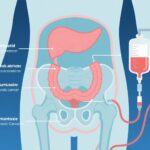Highlights
– Two recent large phase 3 trials found no significant survival or metabolic syndrome prevention benefit of metformin in prostate cancer patients on ADT.
– Metformin modestly improved weight, waist circumference, and HbA1c, but not major clinical endpoints.
– Meta-analysis suggests a possible reduction in prostate cancer incidence with metformin, but not recurrence or mortality.
– The role of metformin in prostate cancer prevention or treatment is now highly questionable in non-diabetic populations.
Clinical Background and Disease Burden
Prostate cancer remains a leading cause of cancer morbidity and mortality among men worldwide. Androgen deprivation therapy (ADT) is standard for metastatic hormone-sensitive prostate cancer, but is associated with significant adverse metabolic effects, including increased risk of diabetes and metabolic syndrome. Metformin, a well-established anti-diabetic agent, has demonstrated potential anti-cancer properties in preclinical and observational studies, fueling interest in its potential role as both a cancer therapeutic and a metabolic protective agent in men undergoing ADT.
Methodology
The most definitive evidence comes from the recently published STAMPEDE trial (Lancet Oncol. 2025), a multi-arm, multi-stage, randomized phase 3 trial recruiting 1,874 non-diabetic men with metastatic prostate cancer from 112 UK and Swiss hospitals. Patients were randomized to standard of care (SOC: ADT, with/without radiotherapy, docetaxel, or ARPI) or SOC plus metformin 850 mg twice daily. The primary endpoint was overall survival; secondary endpoints included adverse metabolic events and safety.
The PRIME study (J Urol. 2025) was a double-blind, placebo-controlled phase 3 trial evaluating metformin (850 mg BID) vs placebo for 18 months in normoglycemic prostate cancer patients starting ADT, with the primary endpoint being prevention of metabolic syndrome (MS) at 18 months.
Complementing these RCTs, a large meta-analysis (Prostate Cancer Prostatic Dis. 2025) pooled real-world evidence to assess metformin’s impact on prostate cancer incidence, recurrence, and mortality.
Key Findings
In the STAMPEDE trial, addition of metformin did not significantly improve overall survival (HR 0.91, 95% CI 0.80–1.03, p=0.15), with median survival of 67.4 months versus 61.8 months for SOC. The frequency of grade 3 or worse adverse events was slightly higher with metformin (57% vs 52%), mainly due to gastrointestinal toxicity (notably diarrhea). Importantly, metformin significantly reduced the adverse metabolic effects of ADT compared to SOC alone.
The PRIME trial, although underpowered due to early closure (n=135), found that metformin did not significantly reduce the incidence of metabolic syndrome at 18 months (55% vs 68%, p=0.2). However, metformin led to significant improvements in secondary metabolic parameters: weight loss, smaller increases in waist circumference, and lower HbA1c compared to placebo at multiple time points.
The meta-analysis found that metformin use was associated with a lower incidence of prostate cancer (RR 0.82, 95% CI 0.74–0.91), but had no statistically significant effect on recurrence (RR 0.97) or mortality (RR 0.94). The protective effect on incidence appeared more pronounced in Asian and European cohorts and with longer duration of metformin use.
Mechanistic Insights
Metformin’s putative anti-cancer activity is thought to involve activation of AMP-activated protein kinase (AMPK), inhibition of mTOR signaling, reduction of circulating insulin/IGF-1, and modulation of the tumor microenvironment. In the metabolic context, its ability to improve insulin sensitivity and reduce hepatic gluconeogenesis is well established. The lack of a clear survival or metabolic syndrome prevention benefit in large RCTs suggests these mechanisms may not translate into meaningful clinical effects in non-diabetic prostate cancer populations.
Expert Commentary
Previous enthusiasm for repurposing metformin in oncology, based on preclinical data and observational studies, is now dampened by these robust RCTs. As noted by STAMPEDE investigators, while metformin is safe and improves some metabolic parameters, it does not confer a survival advantage or prevent metabolic syndrome in this setting. Clinical guidelines are likely to remain unchanged and do not support the routine use of metformin for these indications outside of diabetes management.
Controversies and Limitations
While both RCTs were rigorously conducted, some limitations include the underpowered nature of the PRIME study (due to early closure), the exclusion of diabetic patients, and the predominantly European study populations, which may limit generalizability. Real-world observational data suggest a possible preventive benefit for prostate cancer incidence, especially in certain populations, but are prone to confounding and cannot establish causality.
Moreover, the metabolic improvements observed in weight, waist circumference, and HbA1c, while statistically significant, did not translate into lower rates of metabolic syndrome or improved survival. This highlights the complexity of translating surrogate metabolic endpoints into meaningful clinical outcomes.
Conclusion
The latest phase 3 RCTs (STAMPEDE and PRIME) strongly suggest that metformin should not be used to improve survival or prevent metabolic syndrome in non-diabetic prostate cancer patients on ADT. Metformin remains safe and provides modest metabolic benefits, but these do not justify its use for cancer prevention or as an adjunct to ADT in this population. Future research may further clarify whether subgroups (e.g., diabetics, certain ethnicities) might benefit, but current evidence does not support a broad role for metformin in prostate cancer management beyond glycemic control.
References
– Gillessen S, Murphy L, James ND, Sachdeva A, et al; STAMPEDE investigators. Metformin for patients with metastatic prostate cancer starting androgen deprivation therapy: a randomised phase 3 trial of the STAMPEDE platform protocol. Lancet Oncol. 2025 Aug;26(8):1018-1030. doi: 10.1016/S1470-2045(25)00231-1 IF: 35.9 Q1 .- Eigl BJ, Elangovan A, Ghosh S, Kim JO, et al. A randomized Phase 3 trial of Metformin in patients initiating androgen deprivation therapy as PRevention and Intervention of MEtabolic syndrome: The PRIME Study. J Urol. 2025 Jul 25:101097JU0000000000004695. doi: 10.1097/JU.0000000000004695 IF: 6.8 Q1 .- Liu Y, Zhang Q, Huang X. Effect of metformin on incidence, recurrence, and mortality in prostate cancer patients: integrating evidence from real-world studies. Prostate Cancer Prostatic Dis. 2025 Mar;28(1):210-219. doi: 10.1038/s41391-024-00871-7 IF: 5.8 Q1 .


